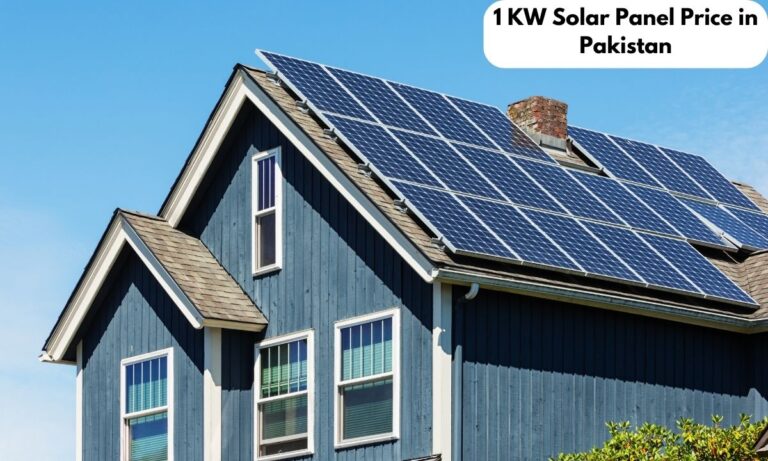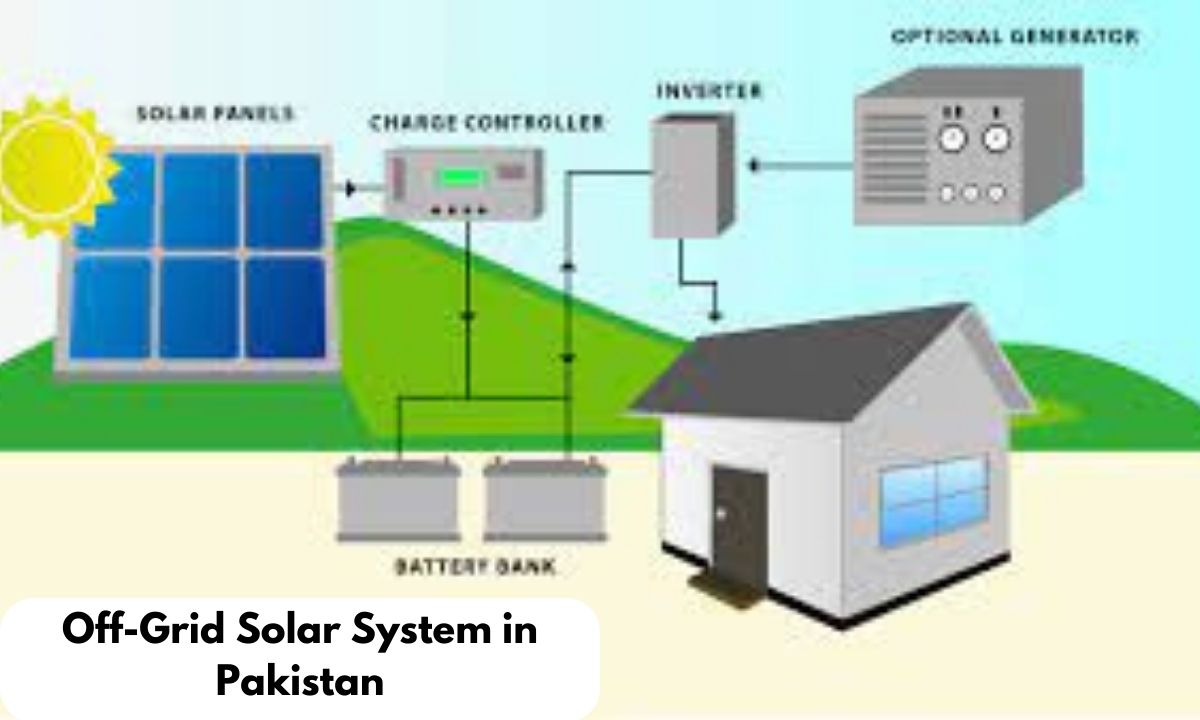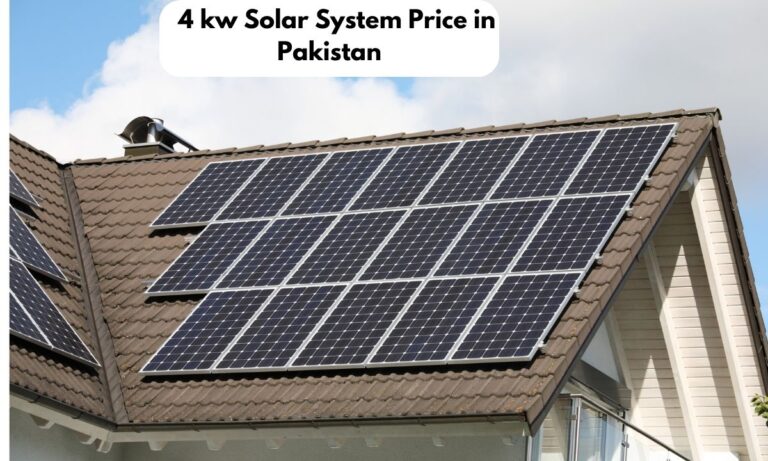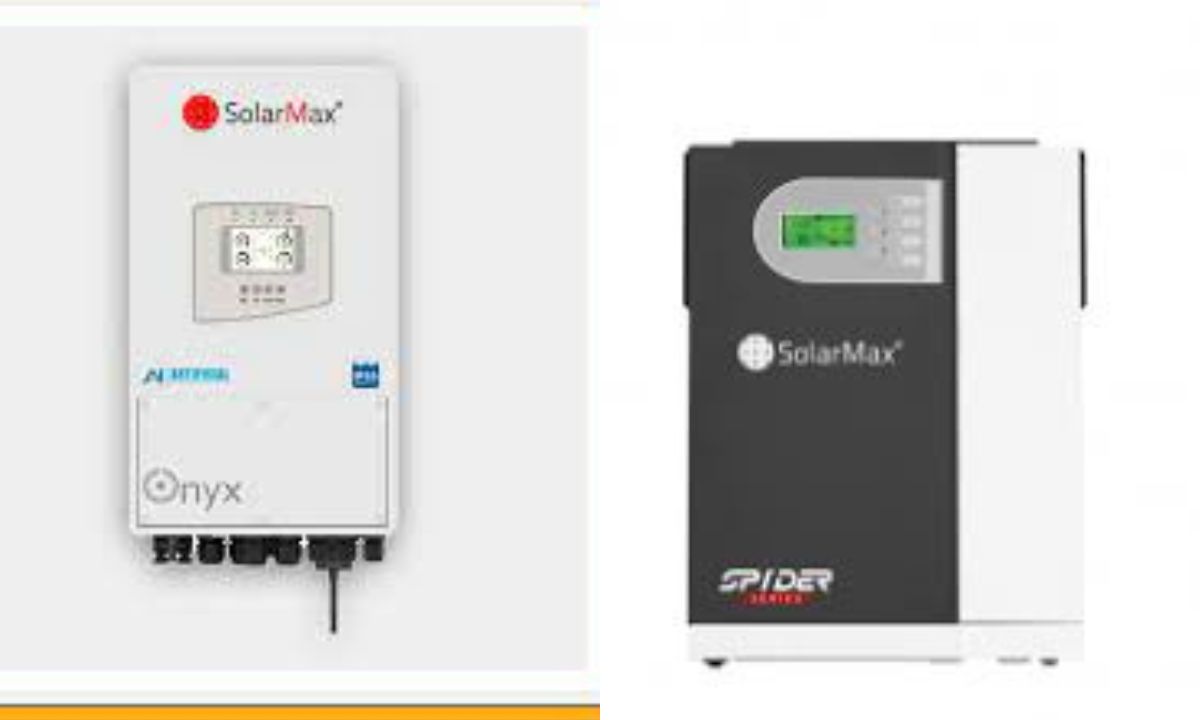7kw Solar System Price in Pakistan (2024 Price Guide)
In Pakistan, where the sun generously shines for about eight to nine hours daily, solar power is becoming a vital solution for clean and sustainable energy. This sunny advantage positions Pakistan to tap into solar power effectively to meet its rising energy demands. A notable avenue in this endeavor is the adoption of a 7kw solar system with a price tag of 1,300,000 to 1,500,000.
This amount covers the solar panels, inverters, mounting framework, and the installation process. Although the initial expenditure might seem significant, it’s crucial to view it as a valuable long-term investment. By opting for this system, households can potentially eliminate their electricity expenses and ensure a steady power supply.
Furthermore, the significance of 7kw solar systems goes beyond just meeting energy requirements. In a nation grappling with energy challenges, these solar setups play a pivotal role.
They not only offer a renewable energy alternative but also aid in curbing harmful carbon emissions and fostering employment opportunities. Thus, choosing to install a 7kw solar system signifies more than just seeking energy self-reliance; it represents a commitment to sustainable growth and a cleaner environment for all.
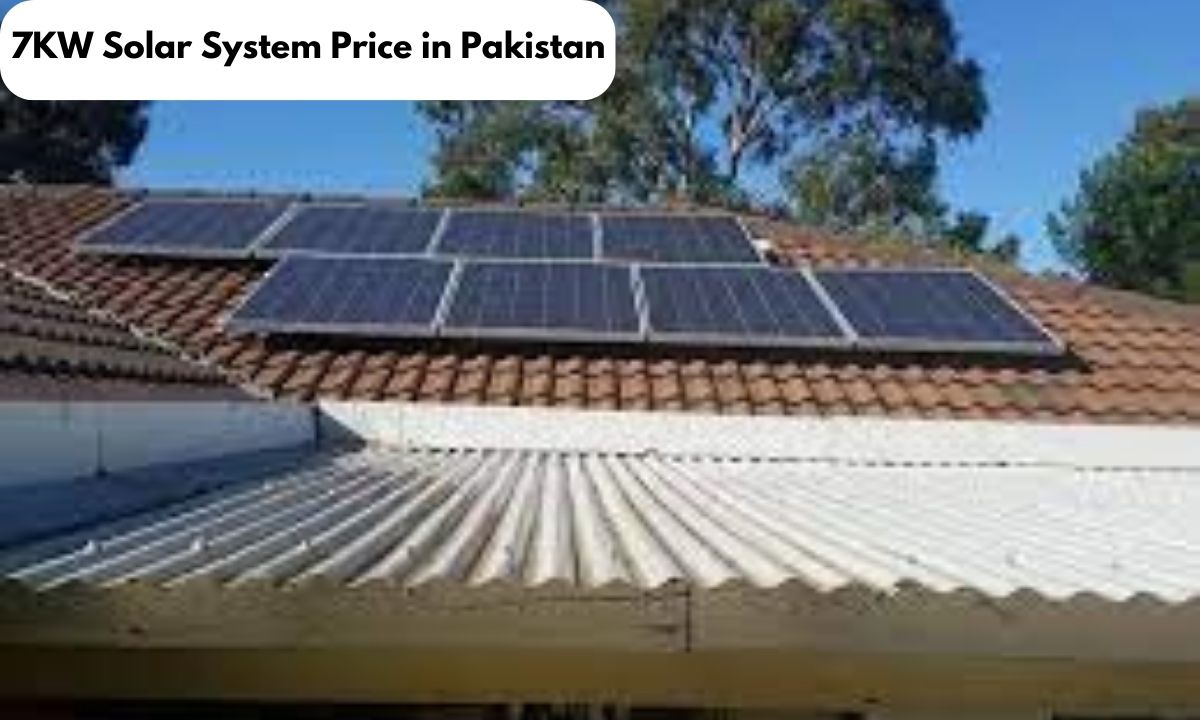
Understanding the 7kw Solar System
A 7kw solar system stands as a robust energy solution, capable of generating up to 7,000 watts of power when it receives adequate sunlight. This system comprises essential parts such as solar panels, inverters, mounts, and connecting cables. To break it down simply: solar panels capture sunlight and transform it into electricity. Then, inverters step in to convert this electricity from a direct flow to an alternating one, making it usable for household needs. The mounts? They’re the sturdy frameworks holding these panels in place, ensuring everything functions seamlessly. And of course, cables link all these elements together.
Now, thinking about where you might set this up? Typically, a 7kw system needs a space ranging from 280 to 500 square feet. This area could be on your rooftop or a designated ground spot, depending on the setup specifics.
Operating this system is quite intuitive. As sunlight hits the panels, they produce direct current (DC) electricity. This DC power gets transformed by inverters into alternating current (AC), suitable for powering homes. If there’s any surplus electricity, homeowners have options: it can either flow back into the main grid or be stored in a battery for future needs.
When it comes to output, this 7kw system can churn out between 450 to 1,200 kilowatt hours (kWh) monthly. Of course, this assumes about 5 hours of sunlight daily with panels facing the South. Such a system not only cuts down energy bills but also ensures a steady and uninterrupted power supply for households.
Cost of a 7kw Solar System in Pakistan
The price tag attached to a 7kw solar system in Pakistan can fluctuate based on multiple elements. Key factors that influence this cost include the quality of the solar panels and inverters, the expenses related to installation, and shifts in governmental regulations or currency exchange rates. Generally, setting up such a system might set you back between PKR 1,300,000 and 1,700,000. Yet, this ballpark figure can shift depending on your specific choices.
Diving a bit deeper, the cost can be swayed by factors such as the brand reputation of the solar panels and inverters you opt for, the intricacies involved in the installation process, and any extra equipment or accessories you might include. Furthermore, external elements like alterations in tax policies, shifts in governmental strategies, or fluctuations in the value of the rupee can also influence the overall cost you incur.
Additionally, it’s worth mentioning that the nature of the 7kw solar system you select matters. Broadly speaking, there are three primary categories: on-grid, off-grid, and hybrid systems. Each of these categories comes with its unique set of components, which in turn, affects the final price point. Thus, understanding these nuances can guide you better in making an informed decision aligned with both your needs and budget.
Comparison with International Prices
Comparing the expenses of a 7kw solar system between Pakistan and the United States reveals distinct differences, shaped by market factors, governmental decisions, and economic climates.
Cost Considerations in Pakistan:
In Pakistan, setting up a 7kw solar system might range between PKR 1,300,000 and 1,700,000. Translating this into dollars, it’s approximately between $5,500 and $7,200, depending on prevailing exchange rates. This amount encompasses essential elements like solar panels, inverters, mounts, and the associated installation charges. Several variables can sway this price, including the caliber of components, the brand’s standing, and shifts in governmental policies or currency values.
Cost Insights from the U.S.:
On the other hand, in the United States, the pricing landscape for a similar 7kw system is quite distinct. Typically, before factoring in any rebates or incentives, Americans might expect to invest around $19,390. However, with the application of the federal solar tax credit, this amount can be reduced to roughly $14,349.
Delving deeper, regional variations emerge, illustrating differing costs. For instance, costs might span between $14,490 and $18,130 in places like Arizona, while in New York, the range could be more expansive, lying between $18,970 and $25,270. Other determinants, such as the type of panels chosen (be it monocrystalline or polycrystalline), the method of installation (whether it’s on the roof or ground), and the integration of a battery backup, also play pivotal roles in shaping the final expense.
Installation of a 7kw Solar System
Setting up a 7kw solar system is a structured process, and here’s a breakdown of the essential stages to guarantee its efficiency and safety:
Site Assessment: Initially, a skilled technician evaluates the location. They’ll measure the area and analyze factors such as the structure of the roof, sunlight exposure, and any potential obstructions that could affect solar performance.
Design Evaluation: After the site assessment, the proposed design undergoes scrutiny. Adjustments, if needed, are incorporated at this stage. This involves determining where to position the panels and inverters and organizing the wiring layout.
Securing Permits: Next, the installation team obtains all required permits from local authorities. This ensures that the installation aligns with the specific regulations and building standards of the area.
Setting Up: With permits in hand, the actual installation phase begins. Whether it’s on the rooftop or the ground, technicians mount the solar panels, install the inverters, and set up the supporting structures. Typically, completing this phase might span a day.
Inspection by Authorities: Post-installation, a mandatory inspection is arranged with local authorities. Their role is to verify that the setup adheres to safety protocols and meets regulatory requirements.
Grid Connection: Following a successful inspection, the solar system gets linked to the main electrical grid. In certain cases, this might involve installing a new meter to monitor solar energy production.
Activating the System: Upon ensuring all checks are in place and receiving the necessary approvals, the system gets activated. This marks the moment when the solar panels begin their task of producing electricity.
Importance of Professional Installation
Ensuring a solar system functions at its best and remains safe hinges largely on expert installation. Trained professionals bring valuable skills to the table: evaluate whether your property is apt for solar energy, craft an effective system design, manage all essential permits, and securely integrate the system with the main power grid.
Relying on their expertise significantly reduces the chances of mistakes or safety concerns, ensuring you reap maximum benefits from your solar investment. Furthermore, these professionals come equipped with the appropriate tools and gear. This not only ensures accuracy during installation but also enhances efficiency and safety measures.
Plus, opting for a professional means you’ll likely have access to warranties and ongoing support, proving advantageous in the long run. While the idea of a DIY solar setup might appear budget-friendly initially, it can introduce unforeseen complications, safety issues, and inefficiencies down the road. Given these considerations, entrusting the installation of a 7kw solar system to seasoned professionals is a prudent choice.
Return on Investment for a 7kw Solar System
When evaluating the benefits of a 7kw solar system in Pakistan, one often looks at the return on investment (ROI), gauged by the savings accrued on electricity bills over a specific timeframe, termed as the payback period. Typically, in Pakistan, this payback duration for a 7kw system falls within 5 to 7 years. In simpler terms, the money saved on electricity bills during this period compensates for the initial setup cost.
However, pinpointing an exact payback timeline hinges on various elements:
- Energy Consumption: The more power you harness from your solar setup, the quicker you see savings on your bills. Efficiently utilizing the energy your system produces expedites the return on your investment.
- Power Generation: In Pakistan, a 7kw solar system typically produces between 25 to 33 units daily, translating to about 750 to 990 units monthly. However, this output can fluctuate based on locale and solar exposure. For instance, while Islamabad might see around 28 daily units from such a system, locations like Skardu might witness a slightly lower yield.
- Grid Interaction: Linking your system to the main grid allows you to sell surplus energy back. This interaction can hasten your payback period by further cutting down on costs.
- System Performance: Various factors, including weather patterns, equipment quality, and installation design, influence how efficiently your solar system operates.
- Governmental Support: In Pakistan, governmental incentives or tax breaks for solar energy initiatives can significantly slash initial setup expenses, thus shortening your payback phase.
Given the multifaceted nature of these determinants, it’s prudent to either undertake a comprehensive evaluation or seek advice from solar experts to gain a clearer understanding of the potential ROI tailored to your circumstances.
Benefits of a 7kw Solar System in Pakistan
Utilizing a 7kw solar system in Pakistan comes with a range of advantages, encompassing financial savings, positive environmental impact, and the capability to operate various household devices.
Financial Savings and Diminished Electric Expenses:
Implementing a 7kw solar system can substantially curtail or completely erase monthly electricity expenses. By producing their own power, individuals can sidestep escalating energy rates, leading to notable savings. To put it in perspective, this system can trim as much as Rs. 18,000 off your monthly electricity charges, culminating in an annual saving of about Rs. 216,000.
Environmental Upsides:
Solar power stands out as an eco-friendly and replenishable energy source, aiding in curtailing carbon footprints and addressing climate concerns. Those opting for a 7kw solar system in Pakistan actively champion a cleaner ecosystem, minimizing their dependency on non-renewable fuels and cutting down on harmful emissions.
Powering Diverse Household Devices:
With its robust capacity, a 7kw solar system can effectively operate an array of household gadgets. This makes it a pragmatic choice for addressing Pakistan’s energy demands. Whether it’s powering essentials like air conditioners, water pumps, irons, ovens, televisions, refrigerators, fans, or LED lights, this system ensures users experience a consistent power supply, especially vital during electricity disruptions.
Conclusion
In Pakistan’s current landscape, a 7kw solar system emerges as both a sustainable and economically wise solution amid escalating energy needs and ecological challenges. Embracing such a system offers tangible advantages, notably in substantial energy cost savings that can significantly diminish or even eradicate monthly electricity expenditures. In practical terms, committing to this system can result in yearly savings averaging around Rs. 216,000.
The ecological significance of transitioning to solar power is profound. By integrating a 7kw solar setup, individuals and enterprises in Pakistan actively diminish their carbon footprint, paving the way for a more eco-friendly future. Additionally, the system’s capacity to power various household devices ensures a consistent energy supply, addressing prevalent issues like power cuts and load shedding.
For those contemplating a shift towards sustainable energy sources, the merits of a 7kw solar system are undeniable. It stands as an investment offering both financial advantages and alignment with global sustainability initiatives. Prospective users would benefit from evaluating its enduring advantages and seizing the chance to satisfy their energy requirements through a renewable and environmentally conscious approach.

